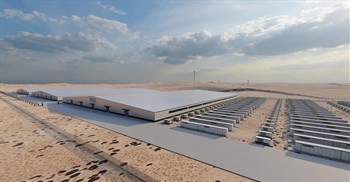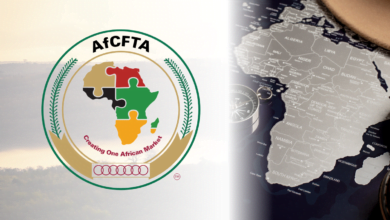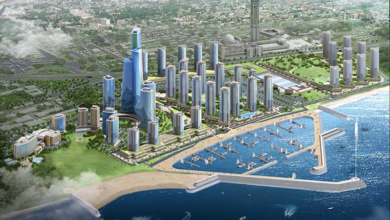As part of the « strategic partnership statement », many bilateral, economic and diplomatic agreements have been ratified between King Mohammed VI of Morocco and the Chinese President Xi Jinping…. Thus, Morocco remains undeniably the partner of choice for other African countries.
The strategic partnership signed between Morocco and China, places once more, the country as an African hub. The official visit of the King of Morocco Mohammed VI on May 11 to China marks a starting point in bilateral trade. This strategic partnership is based on several areas, namely: political dialogue, economic partnership, trade and finance, not to mention human exchanges, cultural cooperation as well as science and technology.
Political issues
This is the first time that such an act is ratified between the two states. According to “Maghreb Agence Presse”agency, only thirty countries worldwide have signed similar strategic partnerships with China. « Diplomatic relationships between Morocco and China have experienced, after the eighties, a significant development beyond the level of normal relations on a geostrategic level”. The King’s speech in Johannesburg highlights a strategic projection between the two countries and expresses the will of Morocco. These new partnerships are based on the principles of South-South solidarity and a win-win situation. Furthermore, Morocco is engaged in the engineering of the « new silk road ». This project officially named « One Belt », « One Road », benefits from a budget of 890 billion dollars and aims to establish new economic axes from China. Seaway service road including East Africa and the Mediterranean, but also in its western part the Atlantic platform of Africa, including Morocco could play an important role, « assure Professor Rezrazi El Mostafa, President of the Moroccan Association for Asian studies and Director of the African Centre for Asian studies.
An economic scope
As reported by Professor Mostafa El Rezrazi, in terms of bilateral trade, there are two components. The first is purely financial and relates to the trade balance. According to him, the trade between the two countries increased sharply between 2002 and 2016, but it remains three times lower than those between Algiers and Beijing. « The trade balance is heavily in deficit for the kingdom, it accounts for 27.2 billion Dirhams in 2014, equivalent to 2.47 billion Euros. This rising trade results mainly from the increase in imports to Morocco, increasing from 7.9 to 29.5 billion between 2004 and 2014 « .
From an investment perspective, the situation is even worse. According to data of the Chinese Ministry of Commerce, between 1998 and 2012, Morocco has never been part of the twenty favorite destinations of Chinese companies in Africa. Indeed, the ‘China-Africa Development Fund’, which has supported more than eighty projects of Chinese companies on the continent, has so far not conducted any operation in the kingdom. Furthermore, between 2009 and 2013, Chinese direct investment in the country amounted to only 63.6 million Dirham or 12.7 million a year when those of France reached 30.1 billion for 2013 only. The main reason lies in the fact that the kingdom is deprived of black gold and less endowed than many countries in the continent in mineral resources. Moreover, foreign direct investment [FDI] of China worldwide have doubled since 2004 and especially, China’s economic transformation, constrained to move from a « world factory » model to an economy producing more added value and focused on its domestic market, particularly due to the explosion of Chinese wages and thus production costs. Relocations should occur and will benefit probably some 85 million jobs, first in the areas of inland China, where labor costs are still lower than they are in the world. However, many emerging countries, including Morocco, rely on the relocation of hundreds of factories on their soil and thus on creating many local jobs. The second plan relies on the partnership that has just been signed between Morocco and China. In fact, this partnership seems to be part of an economic diversification strategy. « Regarding the diplomatic part of this movement, some believe, and rightly so, that in a world where unipolarity and bipolarity continue to crumble, Morocco uses its attractiveness to densify its partnerships serving its supreme interests in a multipolar world, « adds Professor Mostafa El Rezrazi.
A portal to other countries
Through this partnership and thanks to its strategic location, Morocco is among the partners who have significant weight in Africa, but also internationally. However, even if China’s economic strategy in Africa works well, Professor Mostafa El Rezrazi points out that «the Chinese have some difficulties to enter the Middle East ». His Majesty the King of Morocco have excellent relationship with the Gulf countries, thus , Rabat could be perceived by China as a good bridge to reach the Arab-Muslim world. A crucial opportunity for the new Chinese strategy of Morocco, especially after the new developments in the comprehensive strategic partnership between Morocco and GCC. “King Mohammed VI‘s visit to China has set up a strategic partnership that reflects a qualitative upgrade in the relations between the two countries. This is to establish a framework for political relations with a reliable partner, respectful of the specific features of the country” concluded Professor Mostafa El Rezrazi.
The economic situation of Morocco and African countries could further improve to the extent that Asia is considered today as the driving force of the present and future evolutions in all sectors.
By Darine Habchi





